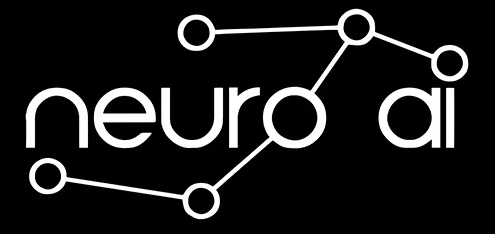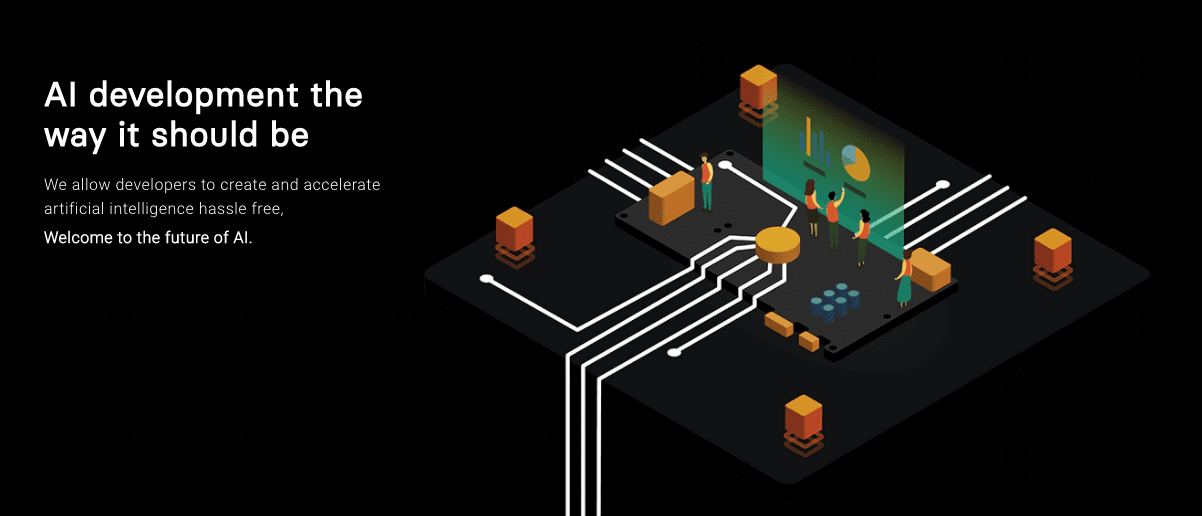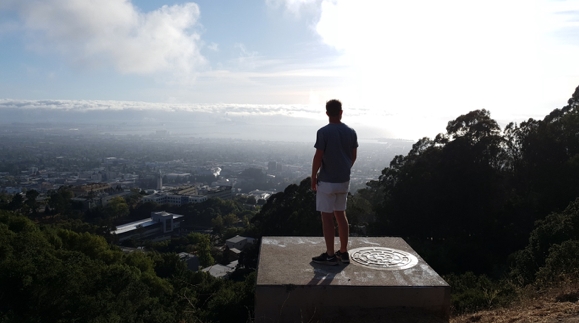Neuro | Innovation Award winner 2019
Neuro Ai is a hardware startup making devices for the high speed processing of AI. The use of AI throughout all industries has exploded but the speed of the computers that AI runs on have not progressed at the same rate.
Neuro Ai is solving this by creating high speed, affordable and versatile hardware giving the power of a supercomputer to everyone.
Want to see what Neuro (they’ve since dropped the Ai) are up to in 2021? Click here.
#6 May - July 2020
We have our new Triton V2 prototypes in house and professionally made (no more burning my hands on the soldering iron). They’re great! On top of this we have our online service (API) ready to go for private/public testing. I told you we had been busy!
Run your AI faster in our cloud with a simple API. Neuro Ai 2020
We have a new management system in the company and it has helped tremendously. It’s a combination of a few ideas and ideals: allow a time for individual creativity, minimise project planning, make sure we’re all on the same page, increase accountability.
Every Thursday we sit down in the afternoon with a prepared agenda that was given out the night before. The agenda has at the top 3 company goals that are important for the near future. Every person then has to have defined and prepared at least 3 Objectives with Key Results (OKRs) that align with the company goals (and you say what company goal your OKR is aligned with). An OKR is an objective with a quantifiable way to say that it has been completed. Example: I want to get 5 more customers on our platform. The Objective is to get people on the platform, the key result is 5 people. If you just say I want to get people on the platform, that is completely open ended and down to interpretation. This brings in accountability and making sure we’re all on the same page.
Another rule with this system is: after the meeting you can’t change your OKRs. Before the meetings you have to prepare your OKRs and this is where the creativity comes into it. If you want to do something, that’s fine, you can suggest it and then assuming it’s agreed upon you can do it. But it has to be constrained to the company objectives with good arguments as to why it is.
We’ve been doing this system for enough time to reflect on it and the results have been tremendous. No more are people ever uncertain about what they have to do, it’s very clear and agreed upon. If work is not done you have to tell everyone else why, so naturally productivity has gone up. From what I can tell people do not feel unnecessary increased pressure causing an increase in productivity but rather clarity. We spend significantly less time planning overall and not stepping on each other's toes. I do recommend it!
This is the last blog post that I will be doing, and marks the end of Neuro’s first year with the SETSquared Bath Alumni Innovation Award programme. The team at SETSquared has been a great help to myself and Neuro, and has shown the value of developing professional relationships.
As we now launch our product I often think back to the first pitch I gave at SETSquared and how much has changed in the last year. For what it’s worth to anyone thinking about, or in the process of starting a company, I would say don’t waste your time endlessly seeking advice or attending every event/talk/workshop that you can find. Find a few individuals that are credible and experienced (personally involved in a successful company) that you can get advice from and then learn to stand on your own two feet. Just get on with it and start, that’s the hardest part. It’s your job to make the idea successful and you know your company better than anyone else, no matter what they tell you. Find good advice and take what you need for your situation because everything else is a waste of your time. Things are usually never as bad as they seem and to paraphrase George Michael you gotta have faith; YOLO.
#5 April 2020
WFH (Working From Home) is the new standard of the company. The team seems to be adjusting well despite the circumstances (COVID-19 pandemic). Although we have not been together we have produced a tremendous amount of work since being apart. The only social network I use is twitter and I regularly see people commenting on the new found advantages of WFH that were unexpected. Also how they intended to keep doing it after lockdown is lifted. With most things I think there is some truth to this, but also some pitfalls. My takeaway lesson is there’s a lot of distractions in the workplace but office culture is vital for success and cannot be cultivated over Google Hangouts/zoom.
The team longs to be back together and deeply misses the time we spent in the office, but the productivity shift is an important thing to take note of. I think a lot of modern tech companies like changing the status quo simply for the sake. They want to be different because they see value in being different. There is value in doing something better, but there is no value in being different in and of itself. Many older corporations have a standard, methodical and often clinical workplace environment which has stifled creativity and innovation. But in the same light they have stood the test of time and created something stable and reliable (for the most part). New tech companies are notoriously volatile for a variety of reasons, and we want to take the best from both worlds and figure out our own way to get to the top.
#4 March 2020
The new Triton V2 PCB design is well underway and looking lovely. There’s something about having a physical product that’s hard to explain, and a feeling you can’t get in a purely software based company. When I go into pitches people are enamored with our card (so are we)! But PCBs are mostly made in China, which made the COVID situation even more difficult for all manufacturers.
March saw the start of the COVID lockdown in the UK (as I’m sure you’re aware) and introduced massive repercussions throughout the whole economy. From a business perspective this has unprecedented effects throughout the whole economy. I knew people who had been working on their businesses for years see their revenue go to 0 literally overnight when the restrictions were put in place.
I was involved in some early government lobbying where thankfully they brought in some good measures to safeguard many companies. Notably new grant and loan schemes with tremendously generous terms and fast access to them.
This is a difficult time for all extending to the team at Neuro. A reluctance to invest capital has a significant impact on us so cutting burn rate is key. Cash is king.
#3 February 2020
With our eyes set on product launch in June our focus is on creating an MVP ASAP. We have lots of the individual parts of the product working, but when you put everything together things happen that you could never foresee. Our plan is to create an online service that computes peoples AI workloads and sends them the result. We get a bunch of user data that allows us to refine our hardware, and the customer gets a cost effective easy way to use high power AI at scale. With products like this getting to market ASAP is essential so that a feedback loop gets started and you can see if it’s a viable route for the company. This minimises time wasted for everyone involved and also the terrible state of product limbo: product market fit testing is continually put off so vast amounts of time and money are spent developing something in isolation from the world. This describes many hardware companies perfectly. Hardware typically has a very long development cycle and therefore upfront investment. This is risky because a user feedback loop is non existent, and to pivot or change the idea requires lots more additional capital. No one knows if anyone will actually use the hardware product or want it, this is why experienced veterans of the tech world are usually at the helm of hardware companies.
Neuro Ai 2020
Our online service with reprogrammable hardware changes this. The user feedback loop of a fast pace software company, but the technical advantage of custom hardware. Lots of work ahead!
#2 January 2020
The Christmas season roughly translates to silent season in business talk. But it provides a great time to settle your thoughts and rethink your long term plans. For myself and Neuro, it allowed for a lot of retrospective thinking on the past 6 months and how what has been learned can be used to improve the future.
January saw the start of a new employee who will be working full time on our PCB designs, and he’s top notch! With 30 years of commercial freelance experience he showed us a tremendous amount of things that we didn’t know (not just to do with design work). One of the best things about starting a business is watching it grow and seeing others share your passions.
#1 December 2019
Hi, I’m Paul the CEO of Neuro Ai. We’re a Bath based AI hardware company that founded at the beginning of 2019. We make AI fast and easy to use, right from the cloud to the edge. I will be posting on this page through the next year, documenting our journey and some of my thoughts as I go along.
Neuro was incorporated in March of 2019. Just after this I was given one of this year’s University of Bath Alumni Innovation awards along with grant funding supported Bath University alumnus, which commenced this September marking the start of a year in the SETSquared support program. In March I was still completing my masters at Bath University but began working mostly full time on Neuro. Time management was definitely a challenge but starting immediately made such a difference to the progress of the company and has put us in a significantly better position now.
Introducing Neuro Ai at SETsquared Bath’s monthly First Tuesday event in October
When the company began there was a prototype of our processor architecture, but there’s a long road from that to having a deployable easy to use product. We’re a full stack company (we make software and hardware) and making the software was a large priority right from the beginning. But there was a bigger hill that needed to be climbed. As an undergraduate student, you naturally have no experience running and growing a business. Gaining that experience usually comes through many years of slowly building your way up and by learning off others. The phrase we often use to describe the issue behind a lack of experience is “you don’t know, what you don’t know”. My immediate goal at the start of the company was to answer: where do I even begin? It’s very easy to get rapidly bogged down in a wide array of advice for that question that many people ask. I came to the conclusion quite quickly that the question itself is wrong. When you ask: “where do I want to be in 6 months-time with this?” you can set out to create a logical path to achieving that goal. So, instead of asking the former question, I decided to aim for a set of ambitious goals for the end of summer when I was set to graduate. The goal was to have enough money in the bank to hire a team, have an office, and make some prototypes. This was the first leg of our journey, and thankfully we achieved every one of these goals.
The early strategy of most tech companies, especially deep tech, is to get funding to develop their product (as they cannot rely on revenue). Getting funding for us was the primary goal as it could support everything else that we needed to do. Many CEO’s I’ve spoken to have commented that money is money, it doesn’t matter where it comes from as it’s all worth the same. I think there’s a lot of truth to that in most scenarios, but I do believe some money is worth more. Our goal was not just to get money and funding, but also try to get the best money we could. For an early stage company in the UK there is a lot of public funding available through schemes such as Innovate UK, but a strong investor portfolio would give us something else: credibility, which we needed by the bucket load as 22-year-old founders.
To get these strong investors on our team we had to present a strong grasp of our business model, knowledge of the market, and technical ability. To do this there was a lot of reading required, mostly around common business terms/practises used both in the UK and USA. There’s lots of legal work required for a funding round, and it’s best you understand it when you’re asking people for their money. I strongly recommend the legal platform we currently use called SeedLegals, it provides free legal documents that you’ll need early on.
Once we were clued up and had started to develop a network of potential investors, we set about actively trying to raise a full SEIS round (£150k under the SEIS tax break scheme). We managed to raise all of the money in three weeks and concluded 2 weeks before our graduation. Things moved very quickly after this.
Travels in San Francisco
Shortly after the close of our first round we began to receive quite regular outreach from investors dotted around the globe. Mostly in the USA, Germany, and Israel. We were invited out to California by Plug and Play to be fast tracked through to the final of their 3-month acceleration program, which we recently just finished. That program involved many meetings with large corporates mostly based in the Far East, specifically Japan and China, along with general business support. Throughout our travels in Silicon Valley we made many great contacts and gained a strong list of clients we will be working with in the near future. I highly recommend building as many contacts out there as fast as possible if you’re trying to start a tech company.
A VC event held at Levi's stadium in Santa Clara - Co Founders Paul Hetherington (L) and Oscar Rovira (R)
From summer to now we’ve moved from our first office into our much larger second. We’re growing the team and have made a very pretty accelerator card. We’ve also made the software that we initially imagined, and a lot more! Going forward to next year there’s a lot that we want to achieve, such as close our current $2m seed round and develop the rest of our product line.
Triton - our accelerator card
It has been an incredible journey already. Learning is something I really enjoy, and that’s what I spend a lot of my time doing thankfully. Having a great set of mentors and advisors to learn from is so important, it really shows you how much you don’t know. Having these people around myself and the team at Neuro has been truly invaluable, and we’re very thankful for them.
We have a lot of exciting announcements coming out in the near future, and the best place to keep up to date is through our company LinkedIn here, or our company twitter @AiNeuro. My twitter is also @pcjhetherington.
Until next time,
Paul.
![SETsquared Bath Innovation Centre [University of Bath]](http://images.squarespace-cdn.com/content/v1/59ad4c7ef14aa16da6b98425/1543483421246-WGI6RKDJ139AWS7J59TB/ss-bath.png)








